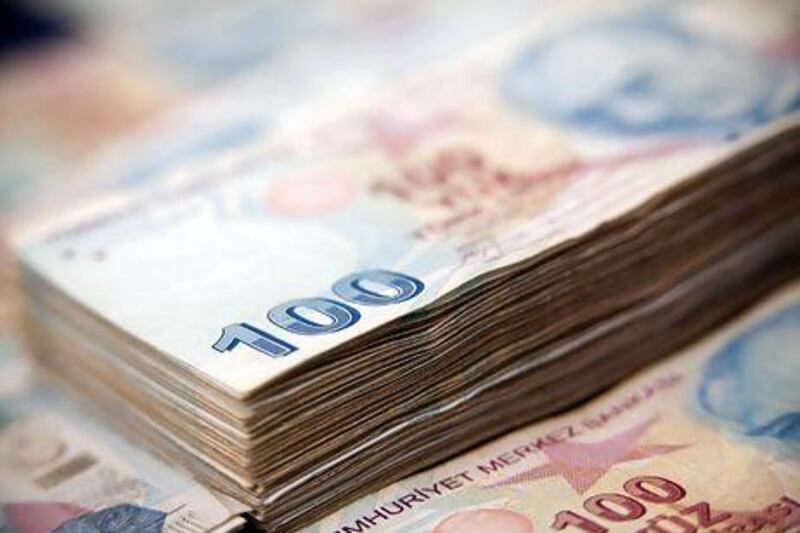Slumping Turkish industrial output is signalling that the slowest economic growth since 2009 may extend through year-end, giving the central bank scope to cut its benchmark interest rate for the first time in 16 months.
One-year interest-rate swaps, which indicate investor expectations for borrowing costs, dropped five basis points to 6.22 per cent after reports showed factory production fell 5.7 per cent and GDP grew at the slowest pace in three years.
Two-year lira-note yields slipped one basis point to 5.75 per cent, while the equivalent Brazilian rate rose five basis points, extending the discount to 188 basis points, near a 13-month low reached on December 3.
A stalling economy is giving the central bank governor Erdem Basci ammunition to lower the main rate for the first time since August last year even as he reduced the top end of his rates corridor to ease bank funding.
The central bank meets next Tuesday to decide on borrowing costs.
"The weak third-quarter GDP reading strengthens the central bank's hand to ease," wrote Ilker Domac and Gultekin Isiklar, economists at Citigroup in Istanbul. Growth and industrial-output data increased the chance of a cut in the policy rate this month, they said.
GDP grew 1.6 per cent in the third quarter, less than the median estimate of 2.5 per cent in a survey of 10 economists.
The 5.7 per cent drop in industrial production compared with a 2.5 per cent decline predicted by economists.
A measured cut may be considered in the benchmark one-week repurchase rate of 5.75 per cent and in the overnight deposit rate of 5 per cent in the forthcoming period, the central bank told economists from Turkish banks.
"There is now clearly more room for lower central bank rates ahead," said Simon Quijano-Evans, ING Groep's London-based head of emerging-market research for Europe, the Middle East and Africa.
A reduction in the one-week repo rate and the weighted funding rate for banks "together will be aimed at reducing short-term lira strength and improving midterm growth prospects", he said.
* Bloomberg News






